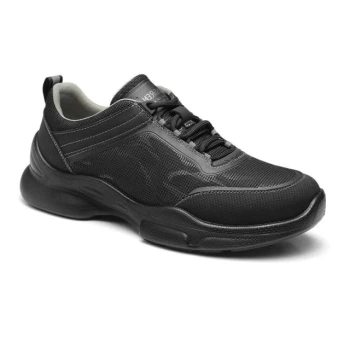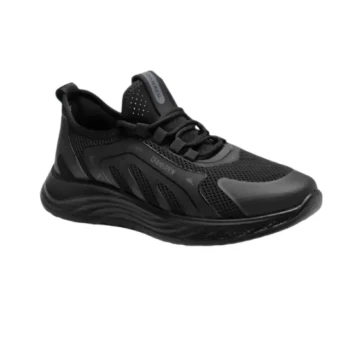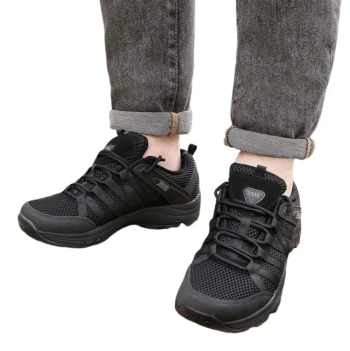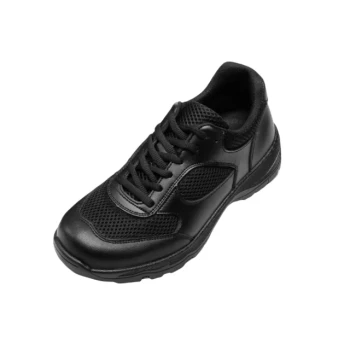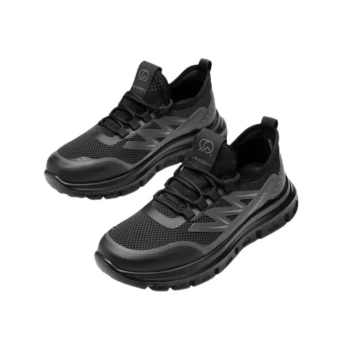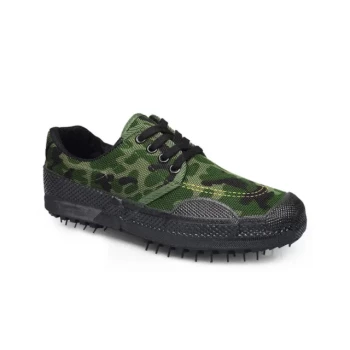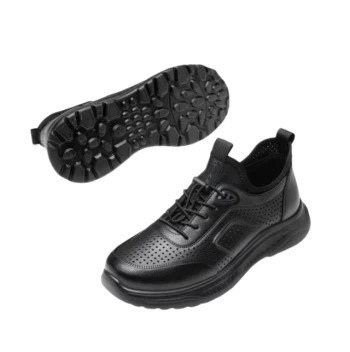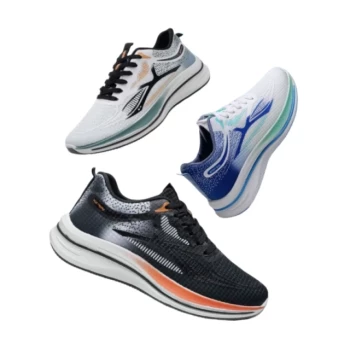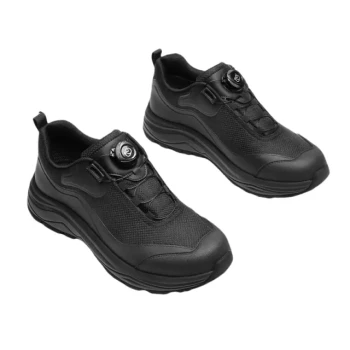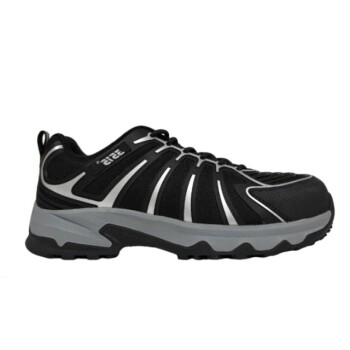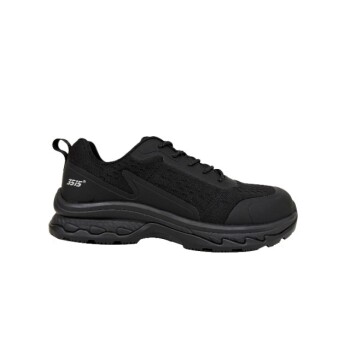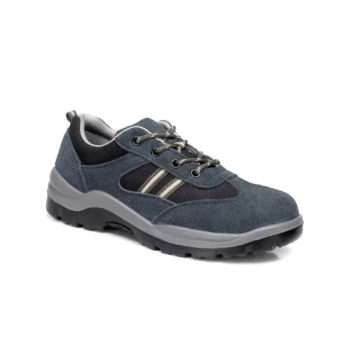Canvas is a shoe material defined by its exceptional breathability and lightweight feel. Typically made from a plain-woven cotton or cotton-blend fabric, its primary characteristics are comfort in warm weather, flexibility, and affordability, making it a staple for casual footwear.
The core trade-off with canvas is simple: you gain exceptional breathability and casual comfort at the cost of weather resistance and the long-term, rugged durability found in materials like leather.
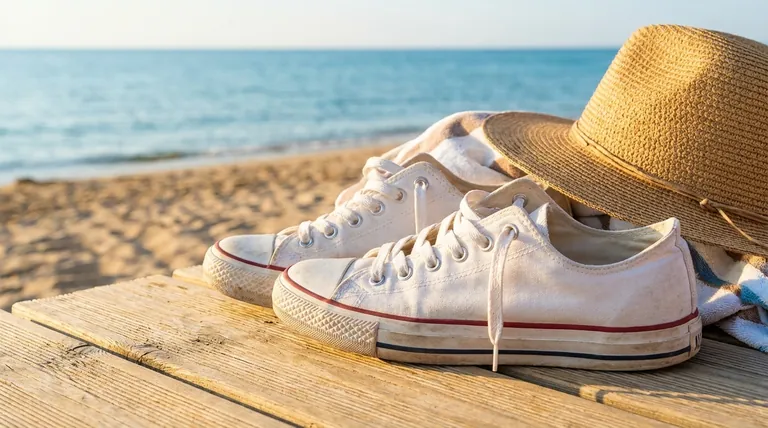
The Core Strengths of Canvas Footwear
Canvas became a popular shoe material for clear, practical reasons. Its inherent properties make it an ideal choice for specific contexts, primarily centered around comfort and casual style.
Unmatched Breathability
The woven structure of canvas allows air to circulate freely. This is its most significant advantage, especially during warmer months.
This airflow helps manage heat and moisture, keeping feet cooler and drier, which in turn helps prevent sweat and odor buildup.
Lightweight and Flexible
Canvas shoes are noticeably lighter than those made from leather or dense synthetics. This reduces foot fatigue during everyday activities like walking.
The material's natural flexibility allows the shoe to move with your foot, requiring little to no break-in period for a comfortable fit right away.
Versatility and Affordability
Canvas is an inexpensive material to produce compared to full-grain leather. This cost-effectiveness is passed on to the consumer.
Furthermore, its fabric surface is easy to dye and print on, resulting in a vast array of colors and designs that cater to a wide range of personal styles.
Ease of Maintenance
Most canvas shoes are relatively easy to clean. Unlike leather, which requires specific conditioners, a dirty pair of canvas shoes can often be rejuvenated with a simple wash.
Understanding the Trade-offs and Limitations
While canvas excels in comfort, it's critical to understand its limitations. These trade-offs are not flaws but inherent properties of the material that make it unsuitable for certain conditions.
Lack of Water Resistance
Canvas is highly absorbent. It offers virtually no protection from rain or puddles, and once wet, it can take a long time to dry.
This makes it a poor choice for wet or unpredictable climates.
Lower Durability in High-Wear Scenarios
While a quality weave can be sturdy for casual use, canvas does not compare to the abrasion resistance of leather or advanced synthetics.
It is not designed for rugged terrain, hiking, or heavy-duty work, where it is susceptible to tearing and rapid wear.
Susceptibility to Stains
The same absorbent quality that makes canvas vulnerable to water also makes it prone to staining. Spills can soak into the fibers quickly, sometimes becoming difficult to remove completely.
Limited Structural Support
By itself, canvas is a pliable fabric that offers minimal structural support. While shoe design can add support elements, the material itself does not provide the rigidity needed for activities requiring strong ankle stability.
How to Apply This to Your Decision
Choosing the right shoe material is about matching its properties to your needs. Canvas is an excellent material, but only for the right application.
- If your primary focus is casual, warm-weather comfort: Canvas is an outstanding choice, offering a lightweight and breathable experience for everyday wear.
- If your primary focus is durability and protection: You should opt for leather or specialized synthetic materials built to withstand rough conditions and keep your feet dry.
- If your primary focus is style variety on a budget: The affordability and vast color options of canvas make it an unmatched leader for versatile, casual fashion.
By understanding these core characteristics, you can confidently select footwear that aligns perfectly with your environment and lifestyle.
Summary Table:
| Characteristic | Advantage | Limitation |
|---|---|---|
| Breathability | Excellent airflow, keeps feet cool & dry | Not suitable for cold/wet weather |
| Weight & Flexibility | Lightweight, flexible, no break-in period | Offers minimal structural support |
| Cost & Style | Affordable, easy to dye, vast color/design options | Prone to staining, less premium look than leather |
| Durability | Good for casual, everyday use | Less abrasion-resistant than leather or synthetics |
Ready to source high-quality canvas footwear? As a large-scale manufacturer, 3515 produces a comprehensive range of durable and stylish canvas shoes for distributors, brand owners, and bulk clients. We ensure superior breathability, comfort, and design versatility in every pair. Contact us today to discuss your custom footwear needs and benefit from our extensive production capabilities!
Visual Guide
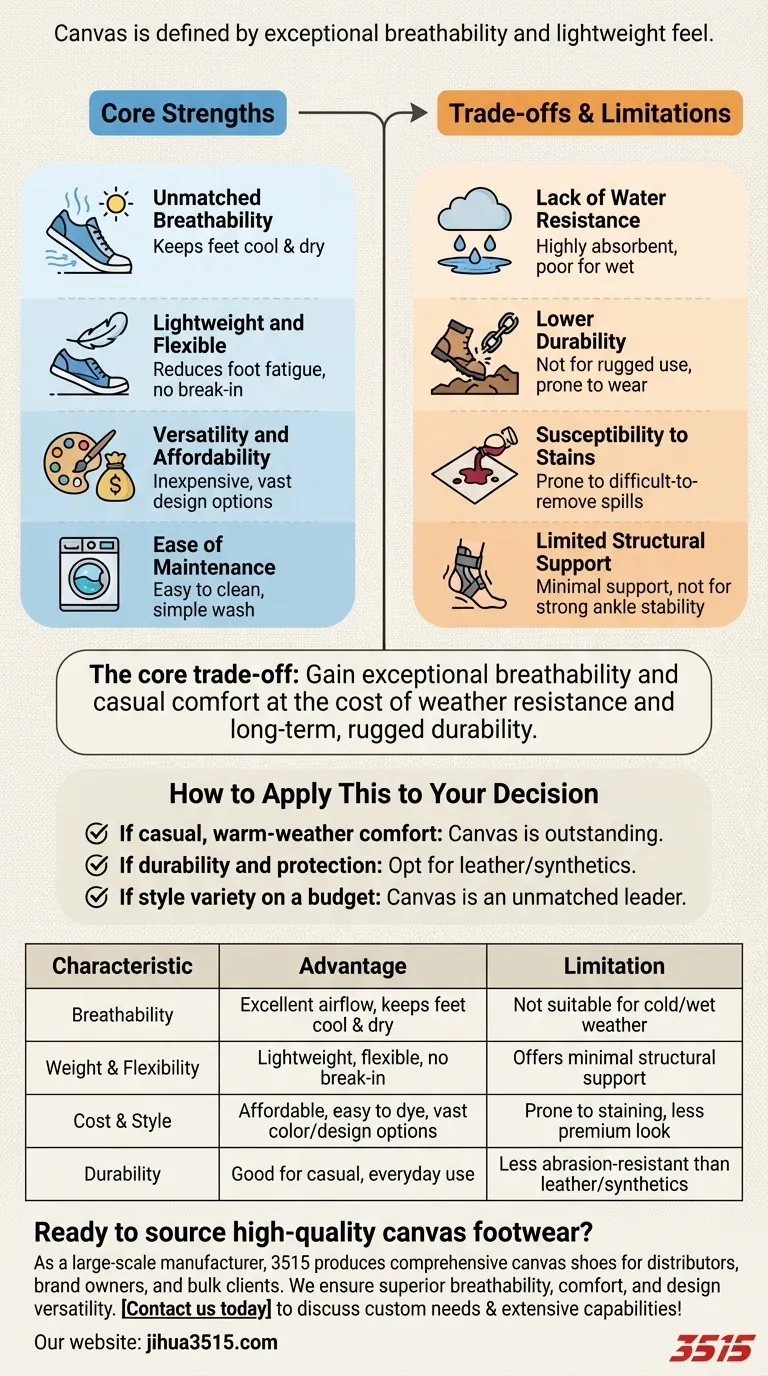
Related Products
- Wholesale Breathable Training Shoes Custom Athletic Footwear Manufacturer
- Wholesale Breathable & Cushioned Training Shoes Custom Factory Production
- Lightweight Breathable Training Shoes for Wholesale & Custom OEM Manufacturing
- Wholesale Durable & Breathable Training Shoes for Custom Brands
- Wholesale Lightweight Cushioned Athletic Sneakers for Custom Bulk Production
People Also Ask
- What is a Flyknit shoe? The Ultimate Guide to Seamless, Lightweight Performance
- How do non-slip athletic shoes differ from regular athletic shoes? Discover the Grip Technology
- Does more ground contact area mean better support? Unlock the Secrets of Stable Footwear
- What are the features of cross training shoes? Master Versatile Performance for Your Workouts
- What materials are best for athletic activities in warm climates? Stay Cool with Moisture-Wicking Fabrics
